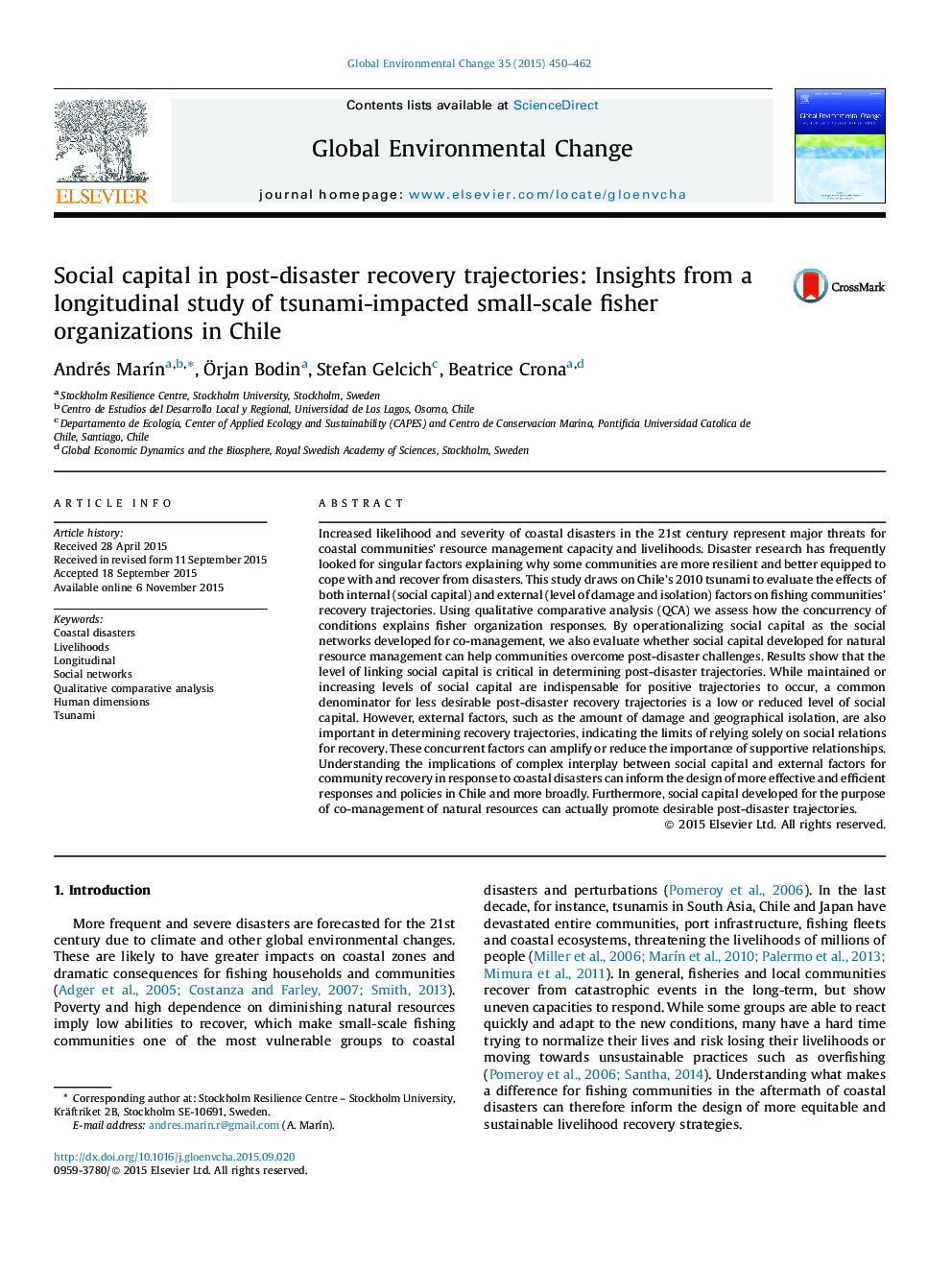| Article ID | Journal | Published Year | Pages | File Type |
|---|---|---|---|---|
| 7469755 | Global Environmental Change | 2015 | 13 Pages |
Abstract
Increased likelihood and severity of coastal disasters in the 21st century represent major threats for coastal communities' resource management capacity and livelihoods. Disaster research has frequently looked for singular factors explaining why some communities are more resilient and better equipped to cope with and recover from disasters. This study draws on Chile's 2010 tsunami to evaluate the effects of both internal (social capital) and external (level of damage and isolation) factors on fishing communities' recovery trajectories. Using qualitative comparative analysis (QCA) we assess how the concurrency of conditions explains fisher organization responses. By operationalizing social capital as the social networks developed for co-management, we also evaluate whether social capital developed for natural resource management can help communities overcome post-disaster challenges. Results show that the level of linking social capital is critical in determining post-disaster trajectories. While maintained or increasing levels of social capital are indispensable for positive trajectories to occur, a common denominator for less desirable post-disaster recovery trajectories is a low or reduced level of social capital. However, external factors, such as the amount of damage and geographical isolation, are also important in determining recovery trajectories, indicating the limits of relying solely on social relations for recovery. These concurrent factors can amplify or reduce the importance of supportive relationships. Understanding the implications of complex interplay between social capital and external factors for community recovery in response to coastal disasters can inform the design of more effective and efficient responses and policies in Chile and more broadly. Furthermore, social capital developed for the purpose of co-management of natural resources can actually promote desirable post-disaster trajectories.
Keywords
Related Topics
Life Sciences
Environmental Science
Environmental Science (General)
Authors
Andrés MarÃn, Ãrjan Bodin, Stefan Gelcich, Beatrice Crona,
